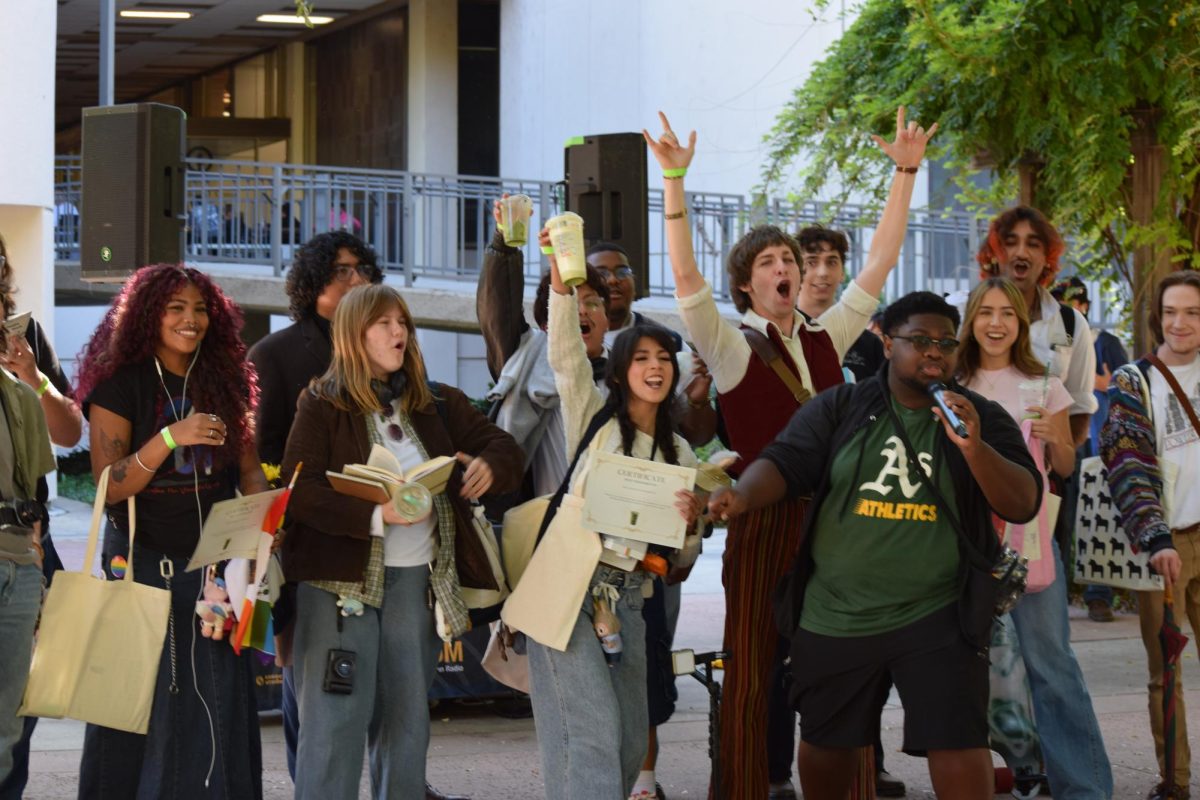Sac State opens applications for faculty learning groups
September 14, 2011
Sacramento State’s Center for Teaching and Learning is offering grant-funded faculty learning communities, which will equip professors with the tools they need to be successful in the classroom and to share their ideas with colleagues using a coaching model.
This year’s faculty learning community is titled “Cognitive Coaching: Enacting Reflective Practice to Transform Teaching.” During the fall semester, faculty members have monthly mandatory workshops to discuss their application of the cognitive coaching they received.
The first semester of this Faculty Learning Community will focus on developing cognitive coaching skills by separating the involved faculty into pairs who visit their partner’s classroom once a month and submit a collection of data observed during their visit.
The staff involved in this program will also receive $700 from Sac State, which is strictly to be used for books, software and other materials or conferences that are necessary for enhancing the participating faculty’s teaching abilities.
Once the coached faculty receive their observation, they decide for themselves what they want to do with it, whether that is to change the way they interact with students or how they position themselves in the classroom.
Mark Stoner, the assistant director for the Center of Teaching and Learning, said coaches “learn to suspend their own judgment and facilitate someone else’s thinking.”
In spring 2012, an analysis study of the involved faculty’s work will take place, which includes discussions of the effects of coaching on faculty’s thinking and behavior in class.
Faculty learning communities help faculty to connect with their colleagues to share strategies and teaching methods. As a result they develop an intimate sense of community rather than the isolation professors may experience outside of faculty learning communities, which is one of the benefits mentioned by Stoner. Since the coaching that happens between faculty members is an objective observation rather than an evaluation there is no pressure on any of the participants.
To be eligible for the program faculty must be tenured or a lecturer. Applications for the faculty learning community at Sac State are on the homepage for the Community for Teaching and Learning, which is located at csuscognitivecoachingflc.wikispaces.com/Home.
Spots are limited to 12 faculty members per year. The deadline for application submission is Thursday.
The faculty learning communities, which were once known as peer coaching models, have made an impact on educators, such as Fred Baldini, the dean of the College of Health and Human Services, who once taught exercise physiology.
“Based on my experience with peer coaching models I changed everything about my teaching and how I interacted with my students,” Baldini said.
Between coaching and sharing ideas, instructors who are well-educated in their disciplines learn how to present that information effectively to students.
“When you go to school they don’t teach you how to teach,” Baldini said.
Faculty learning communities offer many benefits to those involved, one of those being that the professors learn how to probe their students in class discussions to help them think critically.
“A lot of my professors communicated really well, and got me to think outside of the box,” said Lawonna Knauf, who graduated in the spring of 2011.
Since students are affected by the way their instructors conduct class, this program could be beneficial to students as well as faculty.
“Even though you may have conflicting viewpoints with your professors, they still respect your opinion and run the classroom without bias,” said Joanie Olive, who graduated in the spring of 2010.
Erica Davenport can be reached at [email protected]






























































































































